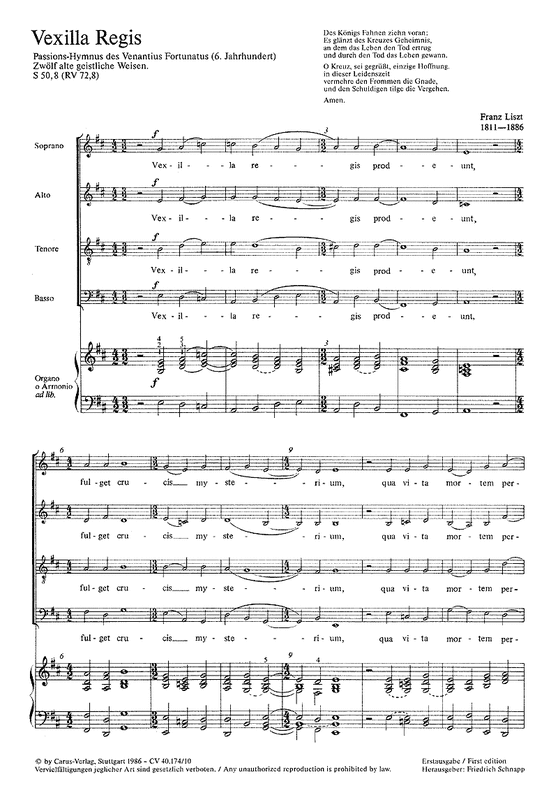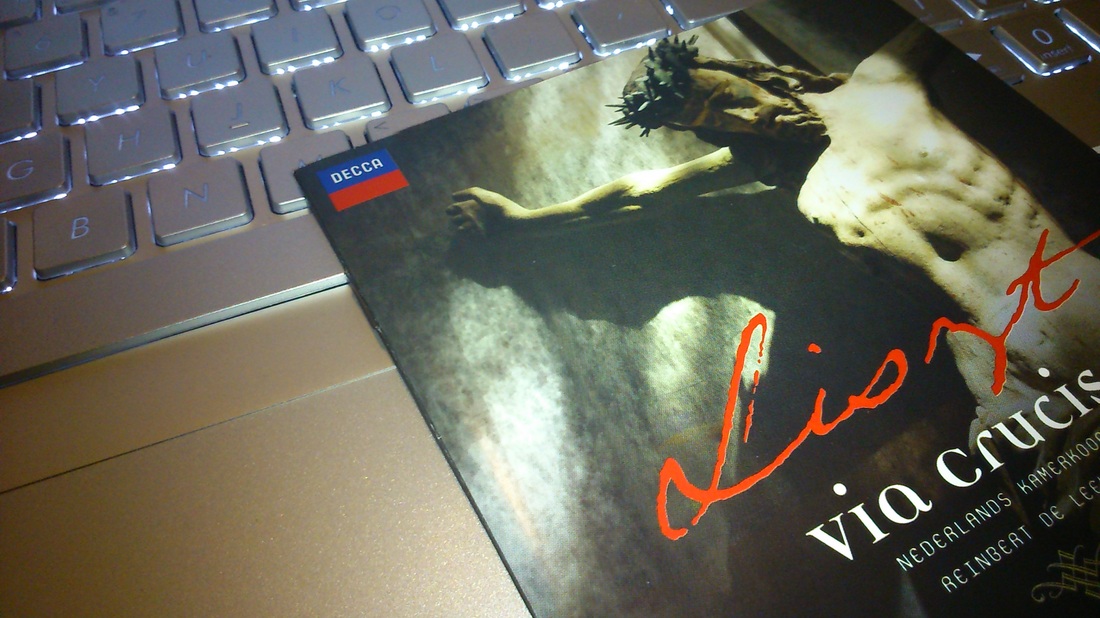|
Easter means Passion time. Most well known of all passions is of course Bach's Mattheus Passion. Another beautiful and fascinating contribution to the catalogue of music for the passion week is Via Crucis by Franz Liszt. With this piece of music Liszt tried to modernize church music but was too far ahead of his time to accomplish that. It was rejected by publishers at the time (around 1880) and not played before 1929 (where it premiered in Budapest on Good Friday).
Via Crucis is composed for keyboard and choir. That keyboard can be a piano or an organ. Where the sheer beauty of Bach's Mattheus Passion redeems the listener and brings salvation, Liszt's Via Crucis offers ascesis. It is an eye witness account of the execution of a man. This rendition of the Crucifixion is buried in sound that could shroud itself as a soundtrack for a horror movie. Via Crucis, in his spare use of notes, is a piece of music as heavy as it gets. It looks in the abyss of one's inner life. A place where the listener detecs, very much to its own surprise, that someone else was there before him (or her).
0 Comments
Leave a Reply. |
TIMELINE
July 2024
|



 RSS Feed
RSS Feed